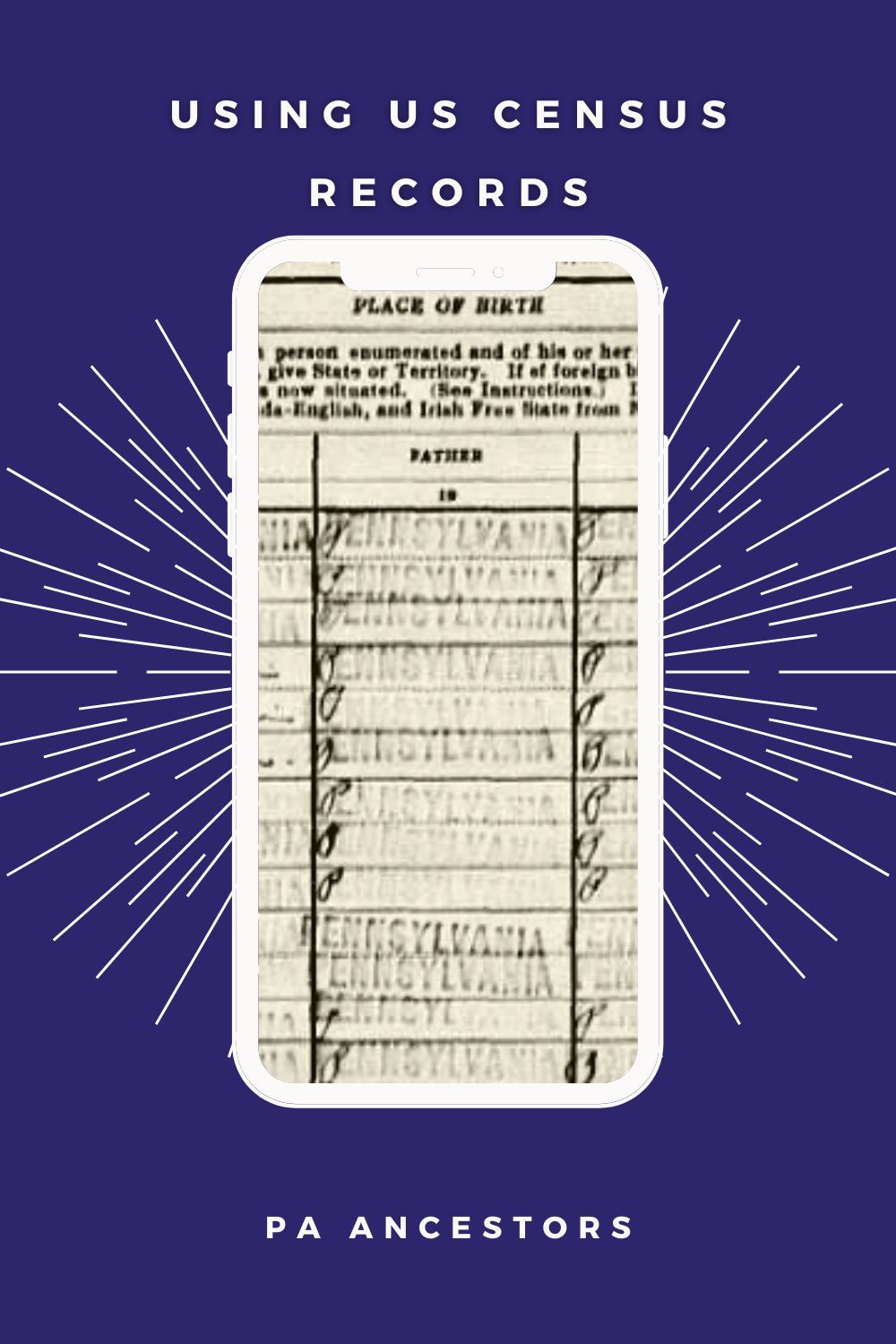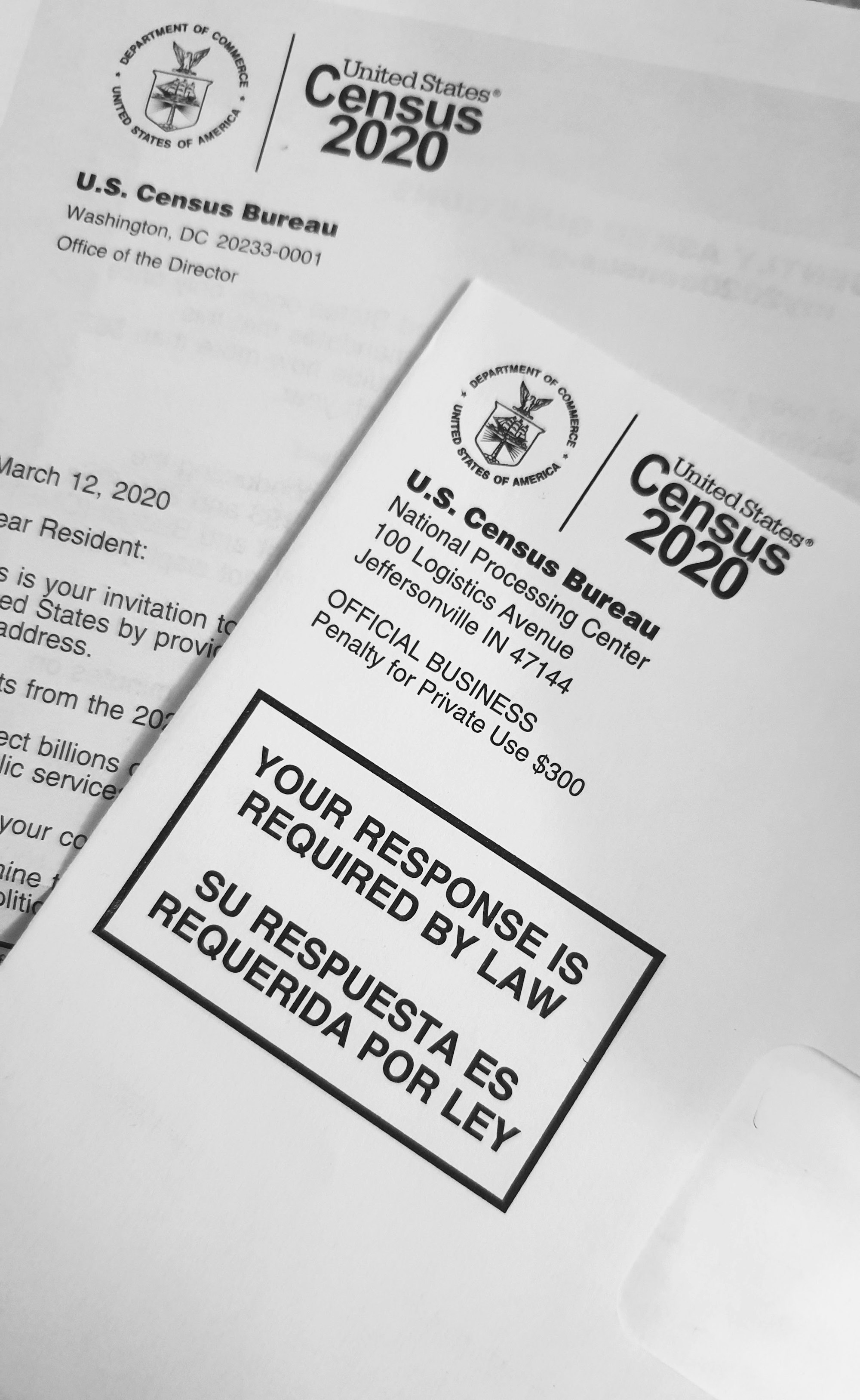Using U.S. Census Records To Boost Your Pennsylvania Genealogy Research
Census records are a common starting point for family history research in Pennsylvania. In this post, I will guide you through the process of using US Census Records to both start your Pennsylvania genealogy research and enhance your Pennsylvania genealogy research.

Census records are a common starting point for family history research in Pennsylvania. Fortunately, Pennsylvania is a state with a long history, and its residents have been recorded in every United States census. However, researching in the United States census can also be a challenging, particularly if you don't know where to begin.
In this post, I will guide you through the process of using U.S. Census Records to both start your Pennsylvania genealogy research and enhance your Pennsylvania genealogy research.
Understanding U.S. Census Records for Genealogy Research
U.S. Census Records are an excellent resource for genealogy research as they provide a snapshot of the population at a particular time. Census records are taken every ten years, starting from 1790, and provide a wealth of information about the individuals living in a particular household, including their age, gender, marital status, occupation, and place of birth.
The U.S. Census Bureau has made these records available to the public after 72 years, which means that census records up to 1950 are accessible for genealogy research. In Pennsylvania, U.S. census records are available from 1790 to 1950. Pennsylvania never conducted state censuses, unlike neighbors New Jersey and New York.
While census records are a valuable resource, they can also be challenging to navigate, particularly if you're unfamiliar with the format. The census data is organized into columns, and each column represents a different piece of information. The order of the columns and what is collected varies by census.
Benefits of Using Census Records for Pennsylvania Genealogy Research
Census records offer several benefits for genealogy research in Pennsylvania. First, they provide a detailed snapshot of the population, including information about age, gender, occupation, and place of birth. This information can help understand not just your ancestors, but also the people who lived around your ancestors in any census year.
Second, census records can also help you uncover additional information about your ancestors, such as their immigration status, the number of children they had, their marital status, and how many marriages they had and for how long. This information can be invaluable when piecing together the puzzle of your family history.
Third, census records can also help you track your ancestors' movements over time. By comparing census records from different years, you can see how your ancestors' lives changed, such as where they lived, how much wealth they had, their occupation, and their family structure.

Tips for Finding and Using Records for Pennsylvania
Finding and using census records for genealogy research in Pennsylvania is usually very easy, but these tips can help if you run into any issues.
- Start by gathering as much information as you already know about your ancestors, such as their full name, birth date, and possible locations where they lived. This information can help you not just narrow down your search, but also confirm you have the correct census records.
- Use all available online resources such as Ancestry.com($), FamilySearch.org(free), and the National Archives(free) to access census records. These resources provide access to digitized copies of census records and offer search tools to help you find individuals in each census year. Each online source has a different index, so the results you get on each may vary.
- When searching for census records, be sure to search using different variations of your ancestor's name. Spelling variations, transcription errors, and name changes can occur, so it's essential to try different spellings and use wildcards in your searches.
- Once you've located the census records you need, take the time to study them carefully. Pay attention to the information contained in each column and look for clues that can help you identify additional family members or ancestors.
Analyzing and Interpreting Census Data for Your Genealogy Research
Analyzing and interpreting census data is a crucial step in genealogy research in Pennsylvania. Once you've located the census records you need, take the time to study them carefully.
Look for patterns and trends in the data that can help you identify additional family members or ancestors. For example, if you notice that your ancestor had several children listed in one census but only one child in the next census, this could indicate that some of the children passed away or moved out of the household. Locating records on these children may provide more details on their parents.
Pay attention to the occupation listed for your ancestor and other family members. This information can provide clues about their social status and economic situation. Look at local companies and industries located within walking distance. These employers may have records located in local archives that have more details on your ancestor’s occupation in Pennsylvania.
Finally, use the information from the census records to help you fill in gaps in your family tree. For example, if you know that your ancestor had several children, but you only have information on one child, use the census data to locate the other children and build a more comprehensive family tree.

Common Challenges in Using Census Records and How to Overcome Them
While census records are a valuable resource for genealogy research in Pennsylvania, they can also present some challenges. One of the most common issues with census records is that the information can be incomplete or inaccurate.
To overcome this challenge, it's important to cross-reference the information found in the census records with other sources, such as birth certificates, marriage certificates, and death certificates. This can help you verify the accuracy of the information and fill in any gaps in your research.
You can also use city directories and tax records as a substitute for the census. Neither city directories or tax records will give you the same details collected by census enumerators, but at least you will place your ancestors in a location.
Another challenge with census records is that they can be challenging to read and interpret. To overcome this, take the time to familiarize yourself with the format of the census records before diving into your research. One helpful guide is the United States Census Bureau’s easy-to-read index of all the questions asked on each census on their website.
Finally, keep in mind that census records are just one resource for genealogy research in Pennsylvania. Supplement your research with other resources, such as church records, land records, and military records, to help you build a more comprehensive family tree.
Other Genealogy Resources to Complement Census Records for Pennsylvania Research
While census records are an essential resource for genealogy research in Pennsylvania, they are not the only resource available. Other resources that can complement your census research include:
- Church records – church records can provide valuable information about your ancestors, including their baptism, marriage, and burial records.
- Land records – land records can help you track your ancestors' movements and identify where they lived.
- Tax records – tax records can provide information about your ancestors' location, assets being taxed, and militia service.
Why Census Records are Essential for Pennsylvania Genealogy Research
Census records are an essential resource for genealogy research in Pennsylvania. They are a good starting point for genealogy research and can create a framework for your family tree.
To make the most of census records, take the time to familiarize yourself with the format and structure of the records. Use websites to access census records, and be sure to cross-reference the information found with other sources to verify its accuracy.
Remember that census records are just one resource for genealogy research in Pennsylvania. Supplement your research with other resources to build a more comprehensive family tree.
© 2019–2023 PA Ancestors L.L.C. and Denys Allen. All Rights Reserved.
